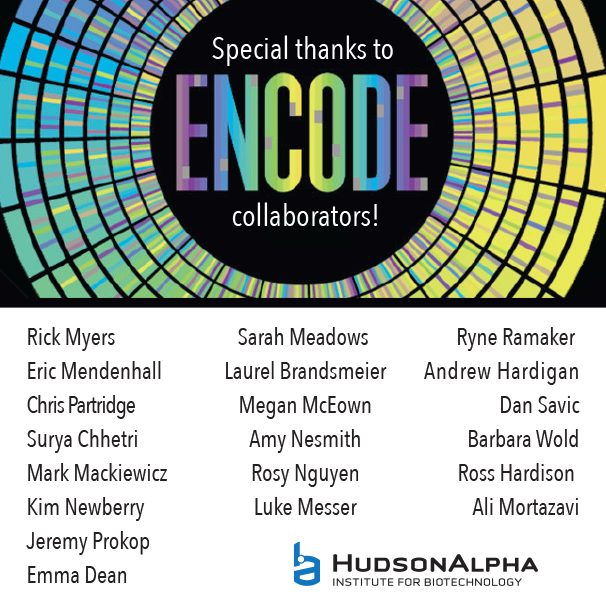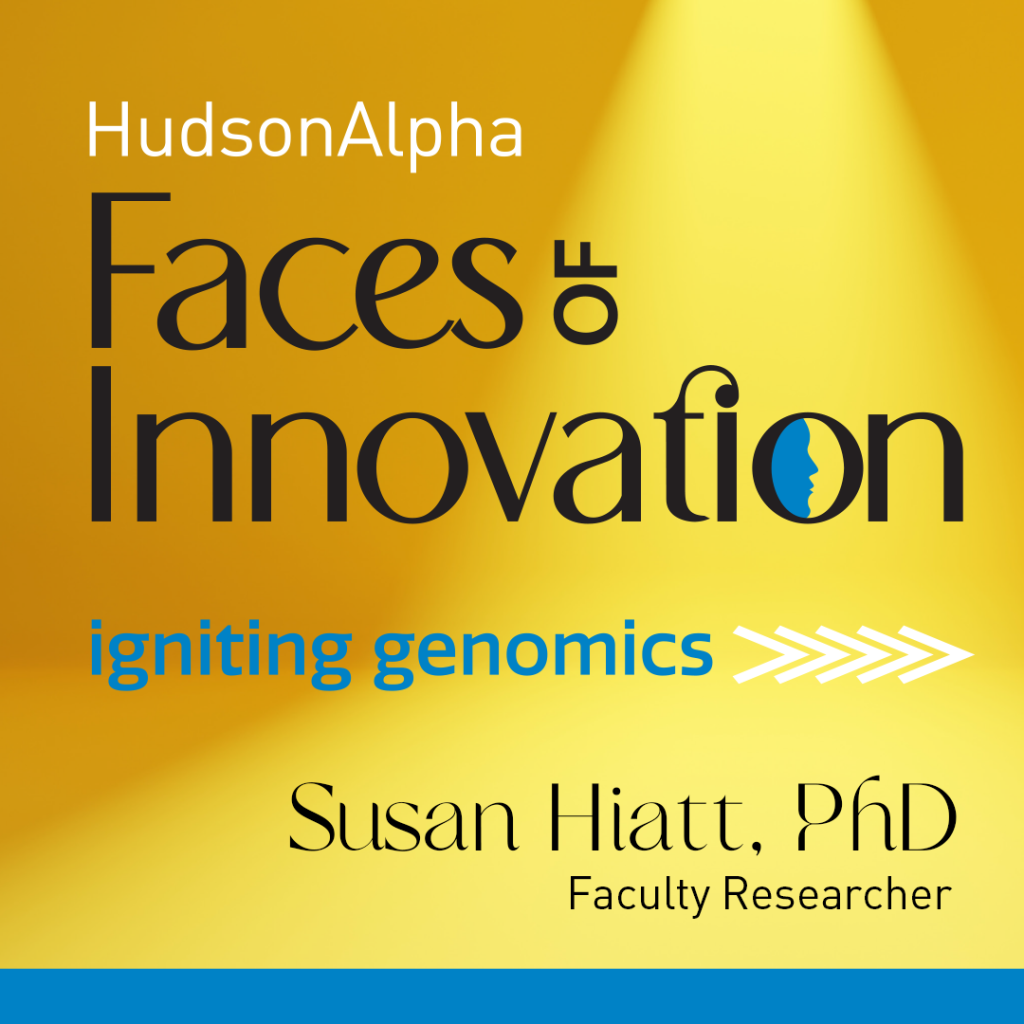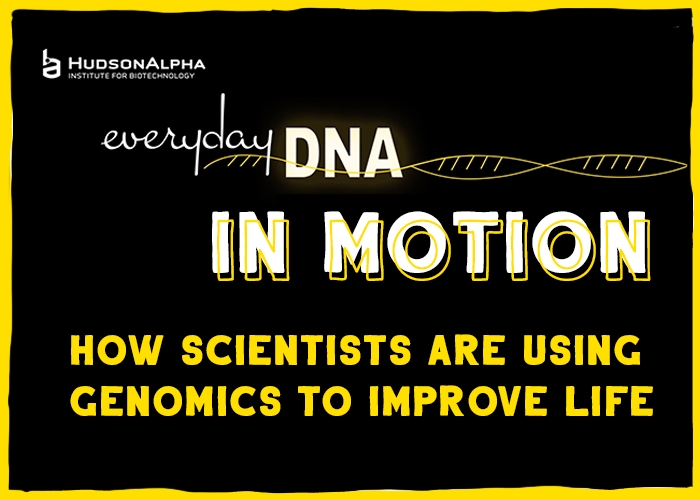Phase 3 of ENCODE project offers new insights into our DNA
July 31, 2020 (Huntsville, Ala.) – For nearly two decades, researchers at HudsonAlpha Institute for Biotechnology, along with collaborators at CalTech, Penn State, and UC Irvine, have been trying to understand how the human genome functions. As members of the Encyclopedia of DNA Elements (ENCODE) Project, a worldwide effort to understand how the human genome functions, they have been tirelessly performing experiments and data analysis to elucidate the importance of the 98% of the genome that does not code for proteins.
During phase 3 of the ENCODE Project, consortium researchers drew closer to their goal of developing a comprehensive map of the functional elements of human and mouse genomes by adding to the ENCODE database millions of candidate DNA switches that regulate when and where genes are turned on.
 Results, including a manuscript from the Myers and Mendenhall labs at HudsonAlpha, were published on July 30 as a 9-manuscript compendium in the scientific journal Nature, accompanied by 21 additional in-depth studies published in other major journals.
Results, including a manuscript from the Myers and Mendenhall labs at HudsonAlpha, were published on July 30 as a 9-manuscript compendium in the scientific journal Nature, accompanied by 21 additional in-depth studies published in other major journals.
All of our cells (with a few small exceptions) contain the same two full copies of our genome. However, in order for the more than 200 different cell types in our body to perform different functions, not all of the genes can be active (or expressed) in every cell type. Transcription factor proteins control gene expression by binding to short stretches of DNA that serve as on/off switches for genes.
As part of the ENCODE 3 Project, HudsonAlpha researchers, along with their collaborators, performed the largest study of transcription factors expressed at physiological, or normal, levels to date.
“Understanding the genomic targets of transcription factors is vitally important to understand many aspects of biology, including gene regulation, development, and to help identify the biological mechanisms of many diseases and disorders,” said Chris Partridge, PhD, senior scientist at HudsonAlpha and co-first author of the study, along with PhD student Surya Chhetri.
By analyzing such a large group of transcription factors, the researchers were able to identify novel associations between transcription factors, elaborate on their spatial interactions on DNA, and distinguish between those that interact with promoters and those that interact with enhancers in the genome.
In addition to the ambitious efforts to understand the human genome, a key hallmark of the Project is the complete and rapid open access availability of data generated by members of the ENCODE consortium, which has led to more than 2,000 publications from non-ENCODE researchers who used data generated by the ENCODE Project.
Rick Myers, PhD, President, Science Director, and M. A. Loya Chair in Genomics at HudsonAlpha, whose lab has been a member of the ENCODE Consortium since its inception in 2003, says that he is proud of the long-term and wide-reaching collaborative nature of the Project.
“One thing we learned working on the Human Genome Project is that huge endeavors like the ENCODE Project work much more efficiently when research groups coordinate their efforts, particularly because ENCODE’s charge is to generate a resource of data, materials and results that are meant to be used by the entire research and biomedical community,” said Myers. “Another thing we recognized early on is that making the data freely available to everyone on a weekly basis, prior to publication and with no strings attached, allows researchers everywhere to make advances in their research much faster than would otherwise be possible.”
This collaborative effort also included HudsonAlpha researchers Mark Maciewicz, Kim Newberry, Sarah Meadows, Laurel Brandsmeier, Megan McEown, Amy Nesmith, Rosy Nguyen, Luke Messer, Ryne Ramaker, Andrew Hardigan, and Dan Savic.
To learn more about the ENCODE Project, you can listen to Myers talk about ENCODE3 and the history of the project on a podcast released by Nature.
About HudsonAlpha: HudsonAlpha Institute for Biotechnology is a nonprofit institute dedicated to developing and applying scientific advances to health, agriculture, learning, and commercialization. Opened in 2008, HudsonAlpha’s vision is to leverage the synergy between discovery, education, medicine, and economic development in genomic sciences to improve the human condition around the globe. The HudsonAlpha biotechnology campus consists of 152 acres nestled within Cummings Research Park, the nation’s second largest research park. The state-of-the-art facilities co-locate nonprofit scientific researchers with entrepreneurs and educators. HudsonAlpha has become a national and international leader in genetics and genomics research and biotech education and fosters more than 40 diverse biotech companies on campus. To learn more about HudsonAlpha, visit hudsonalpha.org.
Media Contact:
Margetta Thomas
mthomas@hudsonalpha.org
256-937-8210


